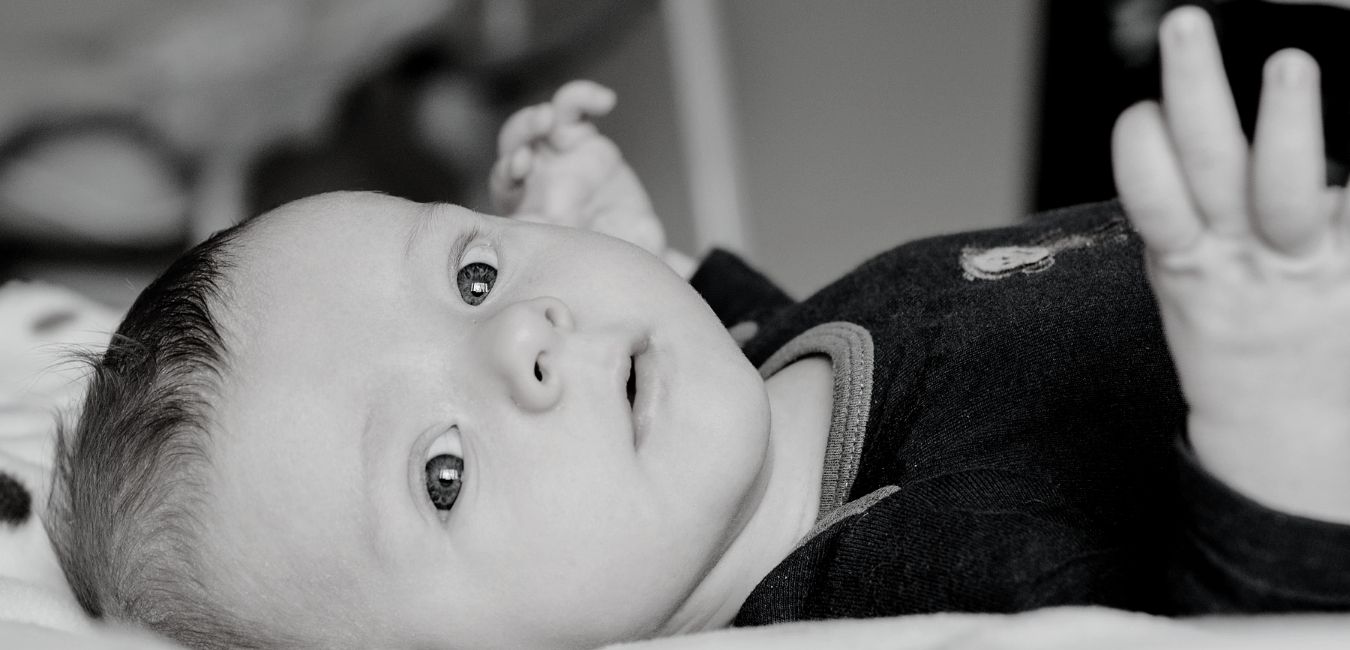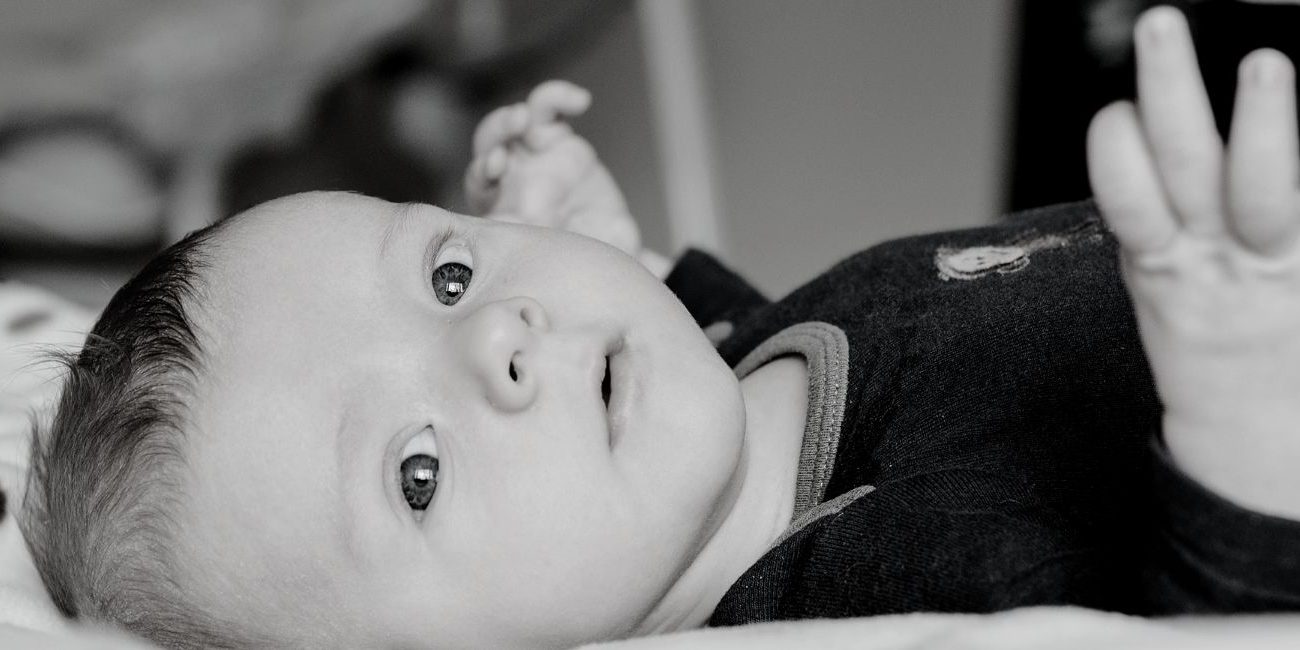Baby’s First Milestones
Each milestone is an extremely exciting moment. It’s a little feeling of achievement as a parent as you say “Yes! I’m creating a functioning human!”. That’s the fun side. The not-so-fun side is when you feel like your baby “should” have hit a certain milestone by now and become increasingly worried as time goes on. This is usually made worse by other parents who will flaunt, or even exaggerate, their own child’s development. So just smile and nod when Susan from Accounting tells you about her 8-month-old neatly loading the dishwasher for her. Every baby develops at their own rate. If you’re concerned, speak to your doctor. Keep in mind that premature babies, full-term babies and overdue babies will develop at different rates too.
We’ll go through a basic guideline of milestones for the first year of your baby’s life, so you have some sort of indication of what to expect, and when to raise any concerns with your doctor. Let’s look at some of the most prominent milestones: smiling, rolling over, sleeping through the night, sitting up, reaching/grasping/holding, speech, crawling, pulling themselves up and walking.

1. Smiling
Your baby’s first “real” smile, or “social smile” usually happens around 2 months old. This is when they smile at you in response to a sound or a face you make while they’re alert and focused on you. Babies will smile from newborn, but these smiles are just your baby getting used to moving their face and imitating your facial expressions, without really recognising that it is a way of communicating. Also, contrary to popular belief, newborn smiles have nothing to do with wind. Until about 2 months, their smiles just mean “hey, my face moves!”.
2. Rolling Over
Some babies will start to roll as early as 3 months, usually going from their tummy to their back first as this is an easier move. By 6 months they’ll be able to roll from their back onto their tummy, this manoeuvre usually takes longer because it requires more strength in the back, neck and shoulders. Once your baby starts rolling you’ll notice that they begin to roll over onto their tummy while sleeping. This is fine as long as they have mastered the tummy-to-back roll. If they can’t roll onto their back themselves then you need to manually turn them over to make sure they can get enough air.
3. Sleeping through the night
More importantly, when can YOU sleep through the night. Each baby is different but on average by 4 months they should be able to sleep for 6-8 hours without a feed and by 6 months should be able to sleep for 8-10 hours without waking up to be fed. Some babies may wake up just to be comforted during the night, completely ruining your blissful fantasy of 6-10 hours of undisturbed sleep! If your baby cannot go asleep by themselves, they will cry immediately when they wake up. Teach your baby to fall asleep by themselves by putting them to bed when they’re sleepy, rather than when they’ve already dozed off in your arms. Think about it, they fall asleep in mammy’s cosy arms, and then wake up in their cot, they immediately think “where’s mam gone?!” whereas if they fall asleep already in the cot it’s less of a surprise when they wake up.
4. Sitting up
At around 6 months your baby will start to attempt sitting upright. They may be very wobbly so need plenty of support, but it’s good for them to work these muscles. If your baby spends a lot of time in bouncers or buggies, or if you use a baby sling a lot, then they may be slower to sit up. Encourage them to sit up by having playtime on the floor or the bed at a time when you can give them your full attention. At 8 months they should be sitting up confidently, if they’re not sitting up by 9 months then ask your doctor for advice on how to strengthen those little muscles.
5. Reaching, Grasping & Holding
From 6 months, your baby can bring both arms to their front to try to grab things, they may be able to hold onto the item with both hands. It’s not until around 8 months that they develop the pincer grip, where they pick up small objects with their thumb and forefinger. This grip is very important for self-feeding. Once they master gripping and holding small objects, small objects can end up being eaten, so be careful to ensure they use their new powers for good, not evil!

6. Speech
Your baby will probably start to make little sounds around 2 months old. Especially when you talk to them while making eye contact. Between 6 and 12 months they’ll start to develop words like “dada” and “mama”. They usually say “dada” first because it’s an easier word (it’s okay to be bitter about it though). By 18 months your baby should have at least 4 words in their vocabulary. Speech therapists expect that 50% of a 2-year-old’s speech should be intelligible, this should go up to 75% at age 3 and 100% at age 4. Babies with older siblings tend to speak much earlier as their older sibling has a simpler vocabulary which is easier to imitate.
7. Crawling
Many babies will not crawl at all. Doctors are generally happy once a baby can move from one place to another independently by 9 months old. Whether they wriggle, roll or scoot, it doesn’t matter. Encourage your baby to move around by getting on the floor with them so they observe how you move around. Going to baby playgroups can be very beneficial for this reason, your baby will watch how other babies move around and try to imitate.
8. Pulling themselves up
Usually, babies are able to pull themselves to a standing position between 9 and 12 months. However, they make attempts much earlier. At about 6 months it is recommended to drop their cot down lower so they would not be at risk of falling out if they managed to use the bars to stand up. Also, be aware of anything top-heavy such as drawers, chairs etc that could tumble if your baby pulled them in an attempt to stand. Encourage them to stand with your help by holding out your hands for support.
9. Walking
Everyone’s favourite milestone, the first steps! Usually comes shortly after mastering the standing position. Many babies walk at about 12 months old, but some babies might not walk until 16 months or older. If your baby has been hitting other milestones as normal then don’t be too concerned if they’re not interested in walking just yet. Encourage your baby to walk by standing them up, holding onto the couch, and enticing them to move along the couch with a toy or a big hug at the other side. Celebrate any small steps they take and don’t worry if they don’t seem very interested. Ask your doctor if you’re concerned, they may be able to recommend methods of improving your baby’s balance to make them feel more confident to lift one of those little feet off the ground.

Conclusion
Each milestone is an extremely special and memorable moment between you and your baby, regardless of when they “should” reach it. As with all aspects of parenting, try not to compare yourself or your baby to others. Growing up is not a race, and motherhood is not a competition.
Thanks for reading,
– The UltraScan Team







